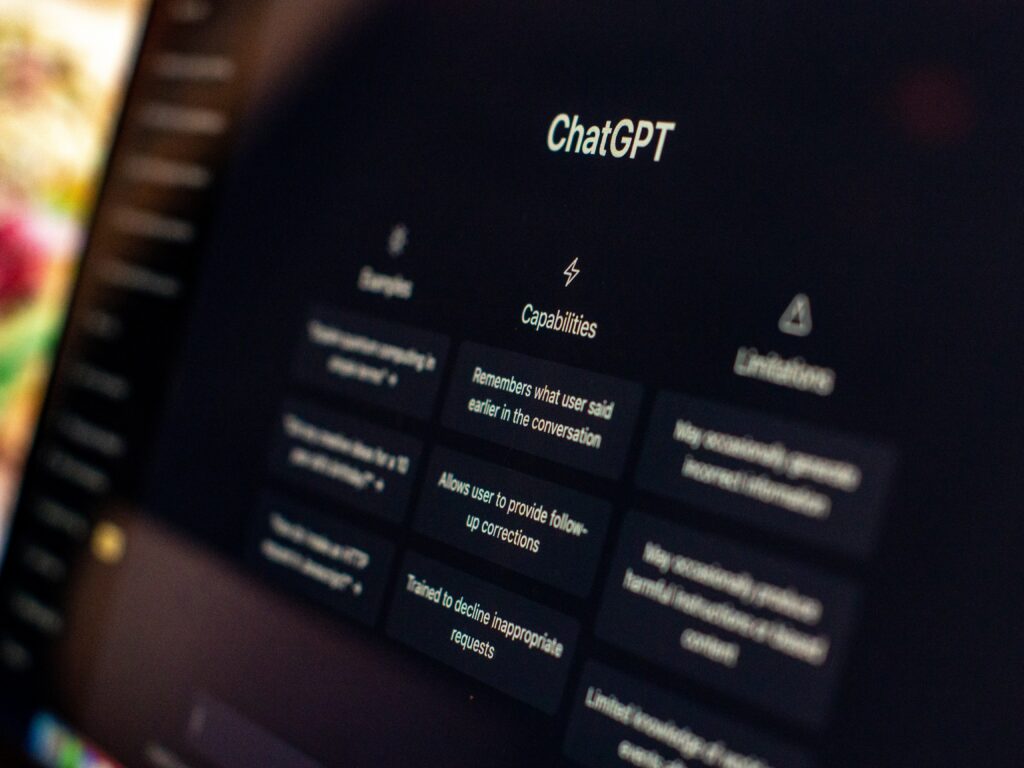IT’S official, the general chatter about artificial intelligence has now reached raucous levels. And it’s hardly a surprise given the saturation of news articles and broadcasts blasting out a continuous stream of ominous warnings about how the rise of the machines has placed an increasingly enfeebled human workforce on the precipice of economic annihilation.
Travel has not been immune to this fretful thread of watercooler chat either, with many nervous travel professionals expressing concerns to colleagues and in online forums about whether the role of salespeople within the industry will be needed in the not-too-distant future if platforms such as ChatGPT, and increasingly sophisticated AI chatbots, can do all the selling to consumers a supplier would ever need.
Only last month, Expedia announced the launch of a new feature it described as “conversational trip planning” powered by, you guessed it, ChatGPT.
The global behemoth said the latest AI integration was a sizable leap forward in its quest to offer users of its app and website more intelligent advice about the best hotels to stay at, must-see tourist attractions, the most efficient transport options, the best dates to visit, availability of tours and so on – does this kind of expertise sound familiar to anybody? The Expedia tech is even capable of emulating the travel agent/client relationship by automatically saving hotels discussed in previous conversations as fodder for future interactions, effectively forming closer bonds between consumer and machine that make repeat visits to the app more seamless in understanding the interests of each customer.
Large OTAs are scrambling to adopt the latest iterations of AI to shore up the perceived gap between their strengths, like large inventories and convenience, against historical weaknesses, such as failing to understand the idiosyncratic needs of the customer through that sought-after ‘human touch’. Generative AI is designed specifically to ape human communication, and when machine learning is combined with an instant connection to the seemingly infinite supply of data scraped from the far reaches of the internet, it’s easy to understand why there is a rising angst in the room amongst travel sellers.
But at least one optimistic interpretation of this collision between AI and travel workers comes from Microsoft Chief Technology Officer Lee Hickin, who recently sat down with travelBulletin to discuss AI’s impact. In his view, people working in the travel sector should be dissuaded from viewing AI exclusively as a threat, even going so far as to characterise the new tech as a potential “superpower” for travel sellers.
“At the high level we have to keep in mind that these tools are not being built to replace humans, but rather to give humans a better way to use technology,” Hickin contends.
“In the tourism industry, you’re always going to have different personas and there are those travellers that have already shifted to online tools like Expedia, and that’s where they go to do their simple travel bookings and now, they’re going to get the AI-enhanced version of that.
“There’s always going to be the travellers that want that quick and dirty experience, but the travel industry has always really been about creating very specialised and customised experiences, that human-to-human connection of talking to a person and creating a unique experience, if you’re looking from that lens, as a travel agent or as a travel professional in the industry, you now have access to this tool, this superpower if you like, that lets you create these really custom schedules and experiences based on that person’s needs.”

Hickin also argues the true value of AI can only really be harnessed by the astuteness of the questions being asked of it, representing another important advantage for travel experts. “Who better to ask good questions of a chatbot about how to travel or where to travel and what the nuances are than the travel professional, they’re the ones who are going to be able to ask and extract the best information, so I think it’s going to be an amazing tool for travel professionals to get out of the noise and mess of paperwork they probably don’t like doing and actually create these really unique experiences with information at their fingertips,” Hickin said.
Expanding on the point about timesaving, the Microsoft tech whizz is adamant AI will be able to significantly cut down on the time travel sellers are currently dedicating to research tasks like internet searches, freeing up important resources to enhance the quality of the itineraries being assembled.
“I suspect a lot of travel professionals who are working to help customers navigate a plan are probably using a lot of internet searching to find out information and that comes with its challenges because you’ve really got to know what to search for and then drill into the details and look at one website and then another website and compare the data, then you need to try and figure out which is the best one based on the knowledge in their heads,” Hickin points out.
“But now [because of AI], instead of searching for something you can just talk to the information, you can ask questions in a nuanced human way and instead of having to put the two websites up and figure out this travel company’s plan and that company’s plan…you can just ask your chat system – ‘my client wants to do this and I know they like these things’ – and get a response back much quicker and get a much better experience out of it.”

But an elephant in the room for many travel sellers remains, which is ultimately the question about the value travel advisors will be able to offer in a world where AI becomes increasingly more intuitive at pace.
When put to Hickin, he highlighted three important factors running in favour of travel sellers on this front. The first is the concept of complexity, and while he concedes that AI may subsume the need for an expert to organise more straight forward travel plans like business trips to Perth for example, a constantly evolving international environment and increasing need for traveller specialisation should ensure a healthy demand for nuanced expertise moving forward. The second is what needs travellers will continue to have when things don’t go according to plan on trips.
“As powerful as these tools are, when…I’m travelling and I’ve got an issue and I have booked through an entirely automated system, knowing who I can call is a real challenge, but when there’s a professional person in front of this amazing tool…and when I’m in trouble…there’s a person I can call and that human touch remains intact,” Hickin argues.
The final point of resistance for travellers making the full leap to a virtual advisor pertains to privacy. Hickin believes there will remain a “mental barrier” for many travellers when it comes to handing over a lot of personal information to a chatbot such as passport numbers, credit cards, dates of birth etc. “I’m not suggesting by any stretch that these things are incapable of handling that data, but from Microsoft’s point of view, we’ve recognised that a lot of people are concerned about the risks of using AI because it maybe sometimes gets it wrong, or they ask is my data secure and private”?
“So we’ve built our approach with this layer called responsible AI, which is a set of mechanisms we put over the top of these things so that if we’re working with travel companies, or individuals or organisations that are building these kinds of technologies, it’s not just about the cool power of the technology, but it’s also a layer of how are you ensuring that data is maintained in a secure and private way?
Testament to Hickin’s view that AI can be a travel advisor’s best friend is Adelaide-based The Don’t Forget Travel Group’s Director, Andrew Sullivan, who told travelBulletin that tools like ChatGPT are “nothing to be scared of”. On the contrary, Sullivan believes travel advisors should embrace the artificial intelligence chatbot, just as he is doing at his agency.
“I think if COVID taught us anything, travel agents need to adapt,” Sullivan said. “There will be ways to help with productivity with it.”
Sullivan is already putting ChatGPT to work in his office, particularly for instances where a client is interested in a destination in which his knowledge is scarce. “It is great for me, particularly when I get questions from clients about destinations that I don’t know very well, that I’ve never been to,” he said. “If someone comes to me and says ‘I want a three-week driving holiday from Barcelona to Cannes’…I’ve started using ChatGPT as my starting point.”
Sullivan suggests ChatGPT can be asked about travel style, trip length, a rough price point – all of which the chatbot then generates and his expertise can then take over. “You’ve got to go back and read it, because with ChatGPT, everything is from two years ago, so you use that as your starting point.”

Itinerary planning is just one function advisors can use ChatGPT for, Sullivan adds, with the plucky agent putting AI to good use on other areas as well, such as helping to create newsletters and FAQs, and as he is investigating, even the potential to generate a website-based self-service platform to limit the number of the phone enquiries his agency receives.
When asked the important existential threat question, Sullivan is confident that tools like ChatGPT will not reduce the importance of travel advisors in the future, pointing out those using the internet to DIY their travel were never going to use an agent in the first place. “That’s no different to going onto Expedia or Booking.com and doing everything yourself,” he notes, adding that the sector is always going to have [travellers] who do that.
“As we know, what the travel agent brings to the party is the personal experience, the knowledge, and the wider industry familiarity, so I don’t think we’ll get rid of that…hopefully it doesn’t become like Terminator,” he jokes.
For some closing context, it’s worth considering that AI is not a new tech as such, while it might be emerging and taking some mesmerising leaps forward, machine learning algorithms and AI-based chatbots have been part of the customer service and sales ecosystem for some time, just think of your Netflix suggestions and predictive texts to name just a few applications. For the moment, the coalface of the technology is concerned with narrow AI, that is to say smart, self-learning machines that are being designed to master one task, and the prospect of a truly sentient AI that can perform multiple tasks still appears to be decades down the track, according to most experts.
The other important point to note is that platforms like ChatGPT and AI chatbots, as impressive as they appear to be, are far from perfect. They can make mistakes, are limited by recency, and in some cases can become corrupted by deliberate misinformation. The most shocking cautionary tale in this regard is the story of Tay, an AI chatbot developed by Microsoft in 2016 to learn from human users on Twitter. Infamously, within only 16 hours the bot had to be shut down after it became corrupted by trolls, causing it to begin spewing out racist and misogynist tweets. While on the surface these stories of technology gone awry are shocking, it should also provide solace that the world is still only at the beginning of the AI journey, and for the moment, without us flesh and blood humans, the smart bot’s effectiveness would be, if you will indulge us, only skin-deep.



